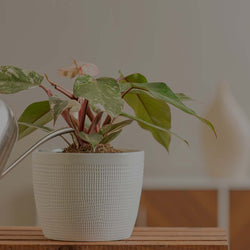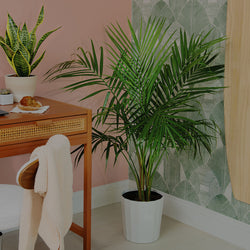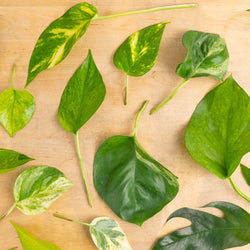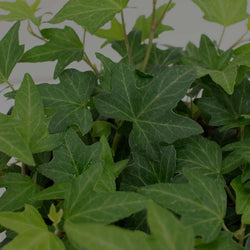By Karen Weir-Jimerson
Everyone loves a beautiful yard, but not everyone wants to spend hours a week to maintain one. If gardening is your hobby, puttering around in your yard is great fun. Gardening is great exercise as well as a way to become more centered. But if gardening is just not your thing, you can still have a beautiful patio, front entryway, and backyard by employing some time-saving and low-maintenance gardening tips that will make your place a paradise without requiring a big commitment from you. Isn’t that good to know? Here are 9 ways to do less work in your garden.

1 Grow less lawn
Time saver: Mow less, water less
The average American spends about 70 hours a year on lawn and garden care. So if pushing a mower around your yard isn’t your idea of fun, then you simply need to reduce the amount of grass you have. You can do this in a variety of (beautiful!) ways: add flower beds, install landscaped areas such as a deck or patio, or replace turfgrass with ground covers. One nice side effect: Less lawn and more flowers means a larger eco-system for nature such as butterflies.
2 Mulch garden and landscaping areas to suppress weeds
Time saver: get off your knees and weed less
Mulching areas of your yard -- with organic materials such as shredded bark or pine straw, is a smart garden design tool that helps define areas and create continuity. While mulch makes a pretty covering over soil, it also keeps weeds from gaining a roothold in your garden. To ensure weedlessness, place a garden cloth barrier on the ground before you add mulch. You can also choose mulch that won’t need to be replenished, such as pea gravel, river stone, gravel, and oyster shells. Organic plant-material mulches break down over time and need to be replaced.

3 Plant more perennials
Time saver: perennials come back each year so you don’t have to keep replanting
If you like the idea of doing something once and enjoying it year after year, then the concept of planting perennials is for you. Perennials are plants that are engineered to come back each spring and look great throughout the season. There are perennials that bloom just in spring, summer, and fall, so planting a combination of all makes from season-long flowers. Some perennials have unusually long bloom periods or rebloom, so they are a great value. Here’s the difference between perennial and annual plants.
4 Add drought-tolerant plants to your garden
Time saver: water less
If water is pricey where you live, or you are interested in conserving natural resources, consider adding drought-tolerant plantings to your garden. These plants simply need less water than others. Some are native to areas which get less rain, so they’ve developed the skill of living happily with less water. Landscaping with low-maintenance plants is called xeriscaping. Here are flowers that will bloom like crazy but don’t require constant hydration.

5 Add automated watering systems
Time saver: water less
You can save time by automating some of your watering chores. If you have an irrigation system in your yard, make sure you have maximized the watering zones so everywhere is getting the right amount of water. You can even install irrigation system emitters in containers so that you don’t have to pull out the hose or watering can everyday to water. A less complicated watering approach is running a soaker hose underneath your mulch in your garden beds. This is a more effective way to water than using a sprinkler; up to 30 percent of water can potentially evaporate before it reaches the ground. Here are watering tips.
6 Improve your soil with compost
Time saver: water less, feed less
Boost your soil’s ability to hold moisture and deliver nutrients by adding compost. Mix compost in with the soil you are adding to container gardens or raised beds. You can also add compost to existing gardens and landscaping by sprinkling it on top of the soil around plants; this is called top dressing. Buy bagged or loose compost at garden centers, but making your own is super easy and saves you money. Here’s all you need to do in six steps.
7 Plant in containers instead of the ground
Time saver: less space, less water, more dramatic
If you want beautiful flowers, succulents, salad greens, or herbs, you can plant all of these in containers. Container gardens don’t need weeding, require less watering compared to a large inground garden, and you can grow anything in them. Cluster containers on decks and patios for easier watering. Window boxes are also beautiful ways to enjoy a small garden from inside and outside of the house.

8 Add a path
Time saver: Less mowing or weeding
Adding a pathway in your yard replaces time-consuming lawn with a functional feature. A path offers a way to walk from point A to point B without stepping on uneven ground or soil (think mud, in wet weather). A path is also a beautiful landscape feature that connects different areas of the yard, making your entire lot feel organized and efficient.
9 Use indoor plants outdoors in summer
Time saver: Use existing plants
Your indoor plants love a summer vacation outdoors. So why not use them on screen porches and patios once the weather warms. Large indoor plants such as monstera, majesty palms, and schefflera add instant tropical allure. They’ll benefit from being outdoors, you’ll enjoy them more because you are outdoors more, plus you’ll remember to water them -- so you don’t accidentally let them languish indoors. See how your indoor plants can add big bold personality to outdoor spaces.




